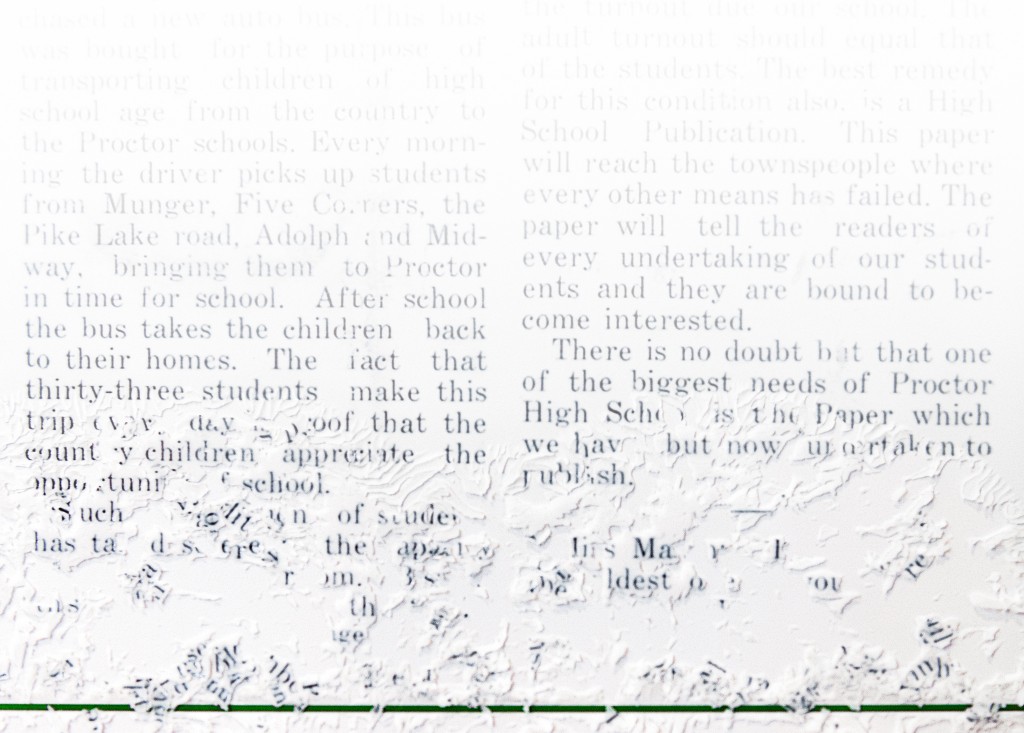
What are you trying to say? If you use these bad phrases in your writing, this is what your article will look like in your readers’ minds.
Photo by Holly Kuchera (Flickr)
If you’re trying to bulk up the word count of a piece, it’s pretty obvious. It slows down the pace and makes a normally acceptable article suddenly TL;DR. The best articles tend to be concise. Eliminate these nonsense, redundant, and useless phrases in your writing to make it clearer and stronger.
If I put the word “fact” in there, it sounds factual, you see …
- Due to the fact that: This phrase can be replaced with “because.”
- As a matter of fact: This adds nothing to your sentence.
- The most important thing/fact is: Either replace it with “importantly” or remove it.
- Considering the fact that: Replace with “considering”
- Regardless of the fact that: Replace with “although”
- The reason why is because: “The reason is” or “because” is sufficient.
- In spite of the fact that: Try replacing this with “although.”
Wait … when, exactly?
- In this day and age: How about “today” or “now”?
- Since the beginning of time: Are you sure? Time began approximately 14.5 billion years ago, according to physicists.
- Throughout history: Are you sure? And is that written history? Human history? All history?
- From the dawn of mankind: Are you sure? Anthropologists and archaeologists are still debating when that was.
- A situation in which: Replace with “when”
- At the end of the day: If you’re using this, it better be describing a point in time (like dusk).
- In the event that: Use “if” instead.
- At the same time as: Replace with “as” or “while”
- At the present time: Choose “at present” or “at this time.”
- During the course of: “During” is enough
Wait … who’s talking?
- Considered by some to be: Who considers it? If you really can’t include the actual source, you could only include “considered.”
- The decision was made to: Who decided this decision?
- Some people/sources say: Which sources? Be specific, or I won’t believe you.
Writers sometimes repeat themselves redundantly.
- First and foremost: First or foremost can be used, not both.
- Add an additional: Plus some more things
- Ask a question: Questions are usually asked, one would assume.
- Basic fundamentals: Fundamentals are, by their nature, basic.
- Each and every: Use one or the other.
- Different kinds: If there is more than one kind, they’re different.
- And also/Additionally also: Yes, we get that you’re saying more things. Be careful not to use “additionally,” “also,” and “in addition” in one sentence.
- And etc.: “Etc.” is short for “et cetera,” and the “et” already means “and.”
Take these out, too.
- For all intents and purposes: You’re just delaying the beginning of the sentence with this one.
- In terms of: Try taking the phrase out. Does it really add anything to your sentence?
- As to whether: Replace with “whether”
- All things being equal: Unless you’re referring to mathematics, this is probably void of any meaning.
- Be that as it may: If you’re not writing dialogue for a character played by actress Maggie Smith, you shouldn’t use this.
- For the most part: As opposed to the least part?
- It is important that: Let the reader decide what’s important.
- The first thing is that: We likely know this because it’s the first thing you’ve mentioned.
Remove these phrases and you’ll have a better article. What are your pet peeves? Do you know of any phrases that don’t mean anything substantial and really get on your nerves?

[…] Here’s what to say instead. […]